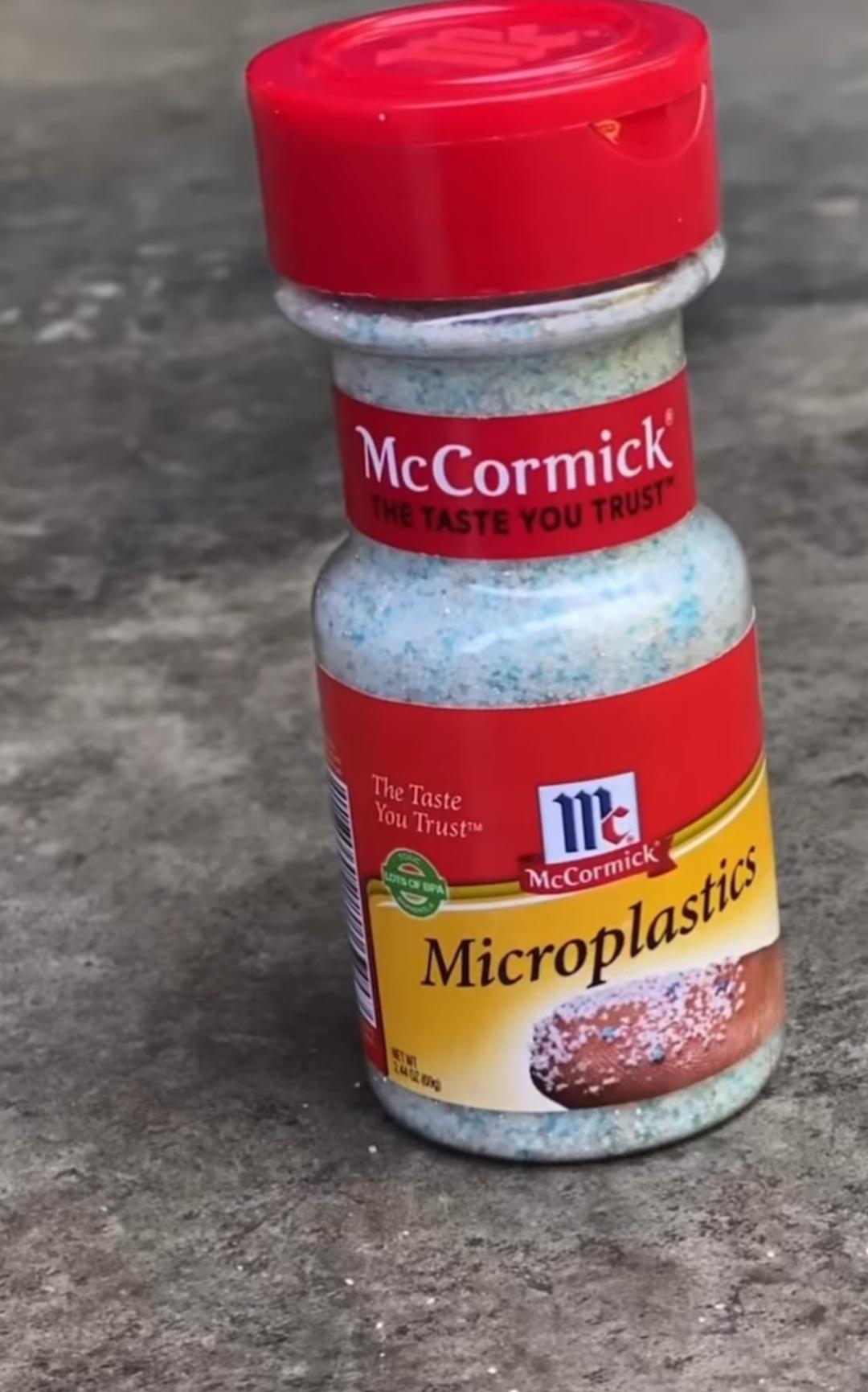The tiny plastic particles were found in all 23 human testes in a new study, and all 47 testes from pet dogs.
Microplastics have crossed so many boundaries it is hard to keep track.
The ‘red flag’ of our consumptive lifestyles, they have reached the limits of the Earth - from the Mariana Trench to the tip of Mount Everest. These tiny particles of decomposed plastic have seeped into clouds, and been found buried in archaeological remains believed to be ‘pristine’.
They have challenged our ideas of bodily inviolability too, infiltrating every organ. What might have been considered the ‘purest’ parts of human life - placentas, babies, breast milk - contain microplastics.
So it comes as little surprise that human testicles have them too, as the most comprehensive study yet on microplastics and the scrotum confirms.
Less is known about what microplastics are doing to our bodies. But in the case of testicles, the new research suggests they could be lowering sperm count.
Yes, but look what it’s done for the profits of the Coca-Cola company and PepsiCo!
Ans let’s remember our friends at McDonnell-Douglas and Raytheon, huh? Record profits, people! Unprecedented geopolitical instability market opportunities!
So go on, get those microplastics in yer junk! Get ‘em in there! That’s right! We got maybe six years tops before this whole planet goes tits up, let’s move! Always Be Closing!

Personally, I buy my microplastics at my local spice market. It’s more aromatic and flavorful for a quarter of the price of McCormick’s shit. But hey, if you want shitty flavorless plastic in your dishes that’s your choice.
I will have you know that I grew up on organic, free range microplastics, and hose water.
Excellent commitment to the bit. Well done
Big oil attacking deez nuts
Seeing the numbers of testes cited here as being an odd number makes me feel uncomfortable.
A friend of mine lost a testicle to cancer (he’s in great shape these days). He said it only made the other one more potent.
Sure, but was the taste test double-blind and placebo controlled?
I’ve got a buddy with three so it all evens out (yes, I know that’s not really how it works).
Apparently it doesn’t all even out!
We’re gonna need your friend to pick up another from ball-mart.
You have to crack en egg or two to make an omelette. Or whatever the saying is.
Thanks for the mental image…
Headline: “Could it be microplastics?”
Story: “oh definitely. 100%. I mean, c’mon. Seriously, it’s SO microplastics it’s insane.”
But Jordan Peterson told me Soy milk made me a girl, who am I supposed to believe! /s
(Obviously not Jordan Peterson or manosphere bullshit)
If soy milk made men into women, I’d have 3 vaginas by now. Vanilla Silk is delicious. 🤤
Wow… that sounds really bad for the economy
Children of Men almost had it right.
Still could.
Here we have men going infertile, whereas in the movie it is the women. Yes, they could follow, certainly. Placentas might not be viable because of all the microplastics, or something. I don’t know as I am no babyologist.
Great film!!
petroleum derived microplastics are stored in the balls. Big Oil is sneaking into deez nutz
Test deez testes.
I don’t have any microplastics in me. My plastics are huge!
Last week it was Roundup.
https://www.theguardian.com/environment/article/2024/may/17/glyphosate-weedkiller-sperm
I promise that multiple things can affect sperm count.
I’m just pointing out that our balls are full of various toxic shit.
My bad, I read it as dismissive.
Easier to be read that way for sure, or maybe I’m just too cynical from all the comments I had to read for topics akin to this.
The Guardian’s story on this has more of the important details
The human testicles had been preserved and so their sperm count could not be measured. However, the sperm count in the dogs’ testes could be assessed and was lower in samples with higher contamination with PVC. The study demonstrates a correlation but further research is needed to prove microplastics cause sperm counts to fall.
The testes analysed were obtained from postmortems in 2016, with the men ranging in age from 16 to 88 when they died. “The impact on the younger generation might be more concerning” now that there is more plastic than ever in the environment, Yu said.
The study, published in the journal Toxicological Sciences, involved dissolving the tissue samples and then analysing the plastic that remained. The dogs’ testes were obtained from veterinary practices that conducted neutering operations.
The human testicles had a plastic concentration almost three times higher than that found in the dog testes: 330 micrograms per gram of tissue compared with 123 micrograms. Polyethylene, used in plastic bags and bottles, was the most common microplastic found, followed by PVC.
330 micrograms per gram
That seems like… a lot. Way more than I expected or am comfortable thinking about.
Just to clarify, 1 microgram is 0.001 milligrams, so 330 micrograms are 0.33 milligrams and 1 gram is made out of 1000 milligrams.
I hope this is true, as it would mean fertility rates would fall. (Right?)
No, it’s obviously soy consumption
Here you dropped this: /s
Removed by mod
Oh, so the manosphere actually has moved on from blaming soy milk for everything.
Also, kindly go fuck yourself you transphobic asshole - transgenderism is neither a disease, something that can be caused nor cured. Trans people have always and will always exist.
deleted by creator
Being reported as sketchy information, but the basic premise of plastics being a synthetic estrogen is sound, at least as far as BPA is concerned:
https://www.breastcancer.org/risk/risk-factors/exposure-to-chemicals-in-plastic
"BPA is a weak synthetic estrogen found in many rigid plastic products, food and formula can linings, dental sealants, and on the shiny side of paper cashier receipts (to stabilize the ink). Its estrogen-like activity makes it a hormone disruptor, like many other chemicals in plastics. Hormone disruptors can affect how estrogen and other hormones act in the body, by blocking them or mimicking them, which throws off the body’s hormonal balance. Because estrogen can make hormone-receptor-positive breast cancer develop and grow, many women choose to limit their exposure to these chemicals that can act like estrogen.
BPA also seems to affect brain development in the womb. In 2011, a study found that pregnant women with high levels of BPA in their urine were more likely to have daughters who showed signs of hyperactivity, anxiety, and depression. The symptoms were seen in girls as young as 3. It’s not clear why boys aren’t affected in the same way."
It’s probably being reported for the transphobic idea that trans people are created by an environmental contaminant which has existed for thousands of years less than transgender people have.
Shame it didn’t do it more, I have way too much testosterone













